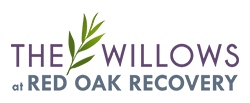When people first get sober, they picture a future without any drug or alcohol abuse. However, the reality is that substance use disorders are a chronic condition with a high potential of relapse. However, you may wonder, what is relapse? Understanding that term can help take away some of the stigma surrounding the situation. By learning more about it, you can get the care you need and lower your risk of returning to drugs and alcohol. To learn about the treatment options available at our North Carolina women’s treatment center, contact the Willows at Red Oak today at 855.773.0614.
What Is Relapse?
A relapse is a medical term that describes the symptoms of a chronic condition. Those with a chronic disease have a relapse when they start experiencing the condition again, even though they had been previously improving. When it comes to substance use disorders, this term refers to using drugs or alcohol again after attaining sobriety. It occurs when you start using a substance you previously had a problem with, or you begin dangerously using a new substance.
The first warning signs of relapse are often emotional. If you are about to relapse, you may deal with mood swings, seem more stressed than usual, or display anxiety and depression signs. You may have more thoughts than usual about using again, and you may lose some of your commitment to sobriety. Next, you may use drugs or alcohol again. During this stage of relapse, there is a high risk of overdose. When you have been sober for a while, your tolerance drops, so you may overdose if you take the same dosage that you did before getting clean. Some people who relapse may only use drugs or alcohol once before seeking help. Others may get into a cycle of repeated use that is even harder to break.
Risk Factors for Relapse
There are mental, physical, and environmental triggers that can increase your chances of a relapse. Those who have used drugs for an extended period or used highly addictive substances like opioids, alcohol, or heroin may be more likely to relapse. These drugs change the structure of the brain, causing cravings long after you quit using them. Being in an environment where people regularly use drugs and alcohol can also increase your risk of returning to drugs and alcohol.
Another potential problem can be high-stress levels. Issues like being in a bad relationship or losing your job may cause you to consider using drugs or alcohol again. If you are currently dealing with these risk factors, it is a good idea to reach out for help. Spending more time in healthy environments and having intensive therapy can help you better manage triggers.
How to Handle a Relapse
No matter how good your intentions are, it is still possible to have a relapse. Roughly half of the people who become sober have relapsed at some point. The important thing is to keep this bump in the road from stopping your overall progress. A relapse does not mean you are no longer sober, and it does not mean your treatment failed. All it means is that you need to adjust your care and reaffirm your commitment to sobriety. As soon as you can, talk to your doctor about your problems. By being honest about your struggles, you can get the help you need.
Get Treatment at The Willows at Red Oak
At The Willows at Red Oak Recovery, we understand sobriety can be challenging for anyone. If you are concerned about your risk of a relapse, we can help you find aftercare and transitional living programs that provide support long after leaving us. We are also here for you anytime you relapse and feel you could use more time in our program. Our helpful blend of clinical therapy treatments, wellness classes, and outdoor activities can help you heal and recover. Our addiction treatment program options include:
- Cognitive-behavioral therapy
- Dialectical behavior therapy
- Group therapy
- Yoga therapy
- Gardening therapy
For addiction treatment or to learn more about how to avoid returning to drugs and alcohol, contact the experts at The Willows at Red Oak today at 855.773.0614.




